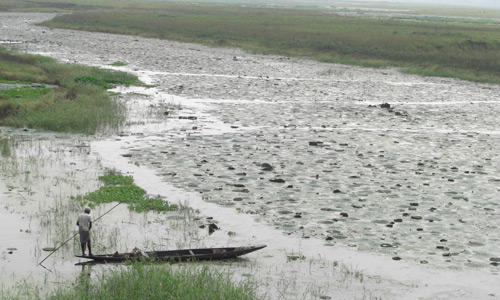The Kai: Bison Hill’s Adopted People Group
December 7, 2009
Students, faculty and staff at Oklahoma Baptist University seek to fulfill the university's mission by actively engaging a diverse world through their partnership with the Kai people group of South Asia. Comprised of 2.8 million people, the Kai people are one of the largest of 600 unengaged and unreached people groups, the total which numbers more than half a billion people.
OBU adopted the Kai through a movement known as "Finishing the Task" in the Fall of 2006. Comprised of several mission organizations, Finishing the Task engages people where no known present Christian witness exists. By adopting this people group, the OBU community, through the Avery T. Willis Center for Global Outreach, commits to share the Gospel and plant churches among the Kai until at least 2025.
"OBU is going through a refocusing in the partnership to determine more tangibly what the goals of our partnership are, and how to reach them," said OBU director of global outreach. "We would like to see improvements in their overall quality of life such as elimination of poverty, increased educational opportunities and business/economic opportunities."

The Kai are mostly rural, poor and uneducated. Most of the Kai people are fisherman, which is looked down upon by upper-caste people in their communities. In India numerous castes exist, and some view the Kai as one of the lowest among them. The needs the Kai face include illiteracy, economic freedom, increased community solidarity, and they need to have saving faith in Jesus Christ. More than 70 percent of the Kai are illiterate.
The Kai are 100 percent Hindu, and some engage in animism. They claim Vasuli Devi, a horse, as their patron god. They believe the creator-god saved them from a giant fish and gave them a horse goddess that later died. The Kai believe they can only achieve salvation by worshipping this goddess.
The language of the people varies by location, but the common tongues are Bengali and Assamese. Both of these languages have translations of the entire Bible; however, due to their illiteracy, the people are unable to benefit from the text.
One of OBU's main goals in working with the Kai is for OBU graduates to live and work long-term among this people group. OBU's Center for Global Outreach would like to see many reproducing churches planted among the Kai, and to see them carry the Good News to their neighbors and around the world.
For more information about the Kai or about the Avery T. Willis Center for Global Outreach, contact the director of global outreach at (405) 878-2377 or go online to www.okbu.edu/go.